Researchers Claim Google Searches For Suicide Increase When Bills Banning Men From Women's Showers Are Proposed: Here's Why They're Wrong
Listen to the podcast at YouTube, Bitchute, or Gab.
Modern medical science has settled on this idea: if a man who pretends to be a woman is denied use of the lady’s shower or restroom, he will feel bad about himself, and perhaps kill himself. Thus we ought to let him in the showers with the women, and make the ladies inside go along with his delusion.
Naturally, this idea is also so if we swap male and female in the description, but it is tiresome to write that way, so we’ll use only the male delusion as an exemplar.
It is a separate question how mandating delusion-agreement came to be the preferred treatment for delusion—it is like mandating liposuction for anorexics, or mandating free flights to Epstein Island for pedophiles. Here we are interested in the idea that proposing non-agreement will cause suicides in the delusional.
Enter the peer-reviewed paper “Anti-transgender rights legislation and internet searches pertaining to depression and suicide” by George Cunningham and others in PLOS One.
They open by reminding us that the delusional “report more attempted suicides than do their peers”. The direction of this statistic is nowhere in dispute, and surely cannot be a surprise.
Keep in mind the modifier attempted. And ask yourself this question: would a delusional man, acting out by pretending in public to be a woman, and becoming upset when others do not concede his delusion, possibly also act out by “attempting” suicide? That is, by going through the form alone as an attention-seeking device?
Of course, it is also true the delusional more often kill themselves than the non-delusional, which again cannot be a surprise.
But if you were this delusional man reading about, say, proposed legislation to ban men from women’s showers, and you wanted to act out with a suicide “attempt” to gain attention, how would you do it?
Our authors suppose you’d jump onto Google and search for “suicide”.
And that, therefore, searches for “suicide” at times when such legislation are being discussed must therefore be caused by the mental agonies of the delusional.
Yes: “the purpose of this study was to examine whether debating anti-transgender rights legislation among state legislators is associated with increased suicide-related Internet searches.”
Note carefully this is really only about discussions of Reality-based legislation. The author’s own table list 40 such bills introduced in different states from July 2019 to July 2020, but only 2 were ever passed.
In Idaho. Which, according to one source, had a higher rate of suicides in 2017 and 2018 than in 2019, and that 2018 was a peak. Indeed, 2019 saw a large drop.
The two states with the highest number of proposed Reality-based bills were Missouri and Tennessee, with 8 bills each. Suicides in Missouri dropped in 2019 and 2020, from a high in 2018. Tennessee did see a slight uptick in suicides from 2018 in 2019 to 2020.
Mississippi, the next state down on the list, with 4 proposed bills, had a constant rate of suicides from 2017, with a small drop in 2020. Alabama, with 3 proposed bills, saw a steady drop of suicides from the peak of 2017.
There were five states with 2 proposed bills: Colorado, steady to slight drop in suicides from 2018; Florida, with a steady fall from 2018; Idaho, which we saw; New Hampshire, a steady large drop from peak in 2018; and Ohio, with a slow steady drop from a peak in 2018.
There were seven states with only one proposed bill—Arizona, California, Kansas, Kentucky, Louisiana, South Dakota, and Utah. All had drops from the peak in 2017 or 2018, except Kentucky, where 2020 was equal to 2018, but 2019 was lower.
The only state they list with no proposed bills is New York, which also had a small drop in suicides from 2018.
Therefore a statistical analysis as naive as the authors’ reveals proposed Reality-based legislation causes decreases in suicide!
In contrast, here are the authors’ goals:
Research Question 1: Is there a relationship between the introduction of anti-transgender bills and Google searches for “suicide” or “depression”?
Research Question 2: Is there a relationship between the passage of anti-transgender bills and Google searchers [sic] for “suicide” or “depression”?
We have already seen there are no increases in suicides—about “depression”, who knows, I don’t know how to check. And that there was only one state which passed legislation, Idaho, and that suicides fell there from an earlier high.
So we are not starting well.
Here’s what they did. They gathered state-level Google weekly searches for “suicide” (and “depression”, which is handled in the same way, so I’ll not discuss it) like this:
To develop our dependent variable, we first collected the weekly volume of searches for “suicide” and “depression” for each state. Following this, we then normalized this measure by using the values produced by two additional searches, one for the common search term “weather” and another using the combination of both the keyword and common search term (“suicide + weather”), as has been done by prior scholars [21, 26, 28]. Following this, we then normalized the measure of Google searchers for suicides for each week in every market, by using the following equation:
Suicide = Suicide – (Weather – (Suicide + Weather)).
Now who searches for suicide and weather simultaneously? Maybe searches like “Does suicide increase in bad weather”? Can’t be many of these, but there must be plenty of “Weather” searches. From which the number of “Suicide & Weather” searches is subtracted, which would leave a number pretty close to the number of plain “Weather” searches.
So we’d be left with number of “Suicide” searches defined as approximately number of “Suicide” searches – number of “Weather” searched.
Wouldn’t this often be a negative number, given how large weather looms in people’s minds?
Here’s the three search terms together for Idaho for the last five years:
“Suicide” is blue, “Weather” is red, and “Suicide” and “Weather” is yellow—of which there were none, hence the flat line.
The authors could have meant, I suppose, “Suicide” or “Weather” (for “(Suicide + Weather)“. But for Idaho, since there were no “Suicide” and “Weather” searches, “Suicide” or “Weather” should necessarily be “Suicide” plus “Weather”, so if that were true, what would their equation give?
Suicide = Suicide – (Weather – (Suicide + Weather))
= Suicide – (Weather – Suicide – Weather) = 2 x Suicide.
When dividing each side by “Suicide”, we have 1 = 2.
Or, if they meant “Suicide” and “Weather”, then we have
Suicide = Suicide – (Weather – 0)
= Suicide – Weather,
which is everywhere a negative number! Which, incidentally, they look logarithms of, an impossibility, and which they surely would have noticed.
So what have they done? Look at this shot, which is “weather” contrasted by “weather + suicide” (where I meant or, in blue):
Since there are no searches for “Suicide” and “Weather”, these two plots should overlap everywhere (make sure you understand that). They don’t. Sometimes “weather + suicide” is higher. Which means only that Google has a slight quirk in the way it counts these things—not surprising when you try and summarize complicated searches at such fine levels.
None of this would mean much, unless you’re attempting to write a scientific paper on Reality-based legislation and the quirks in Google searches.
Anyway, even if I’m wrong about they normalized counts, weather searches went up or stayed steady-ish (which you are free to check), and suicide searches went down, as we’ll see, so their whole premise is false.
Proof: here’s just Idaho “suicide” searches, with my artistic rendition of where July 2019 through July 2020 are:
On average (try it yourself), these decrease over the relevant time period, even as “weather” increases. Here’s a blow up of just those dates:
How about other states, like Tennessee and Missouri, which had the highest number of proposed bills?
Tennessee:
Missouri:
Down, down, down. Same with Mississippi and Alabama. And the same with every state on their list, except Ohio, which remained steady throughout the period.
Clever readers will note that I only show the one year period, and the authors collected weekly data, which might show increases in searches at the times when legislation is introduced or voted on.
But even our authors reject this simple analysis: “Because legislation can often take many weeks for a bill to be introduced, considered, and then voted on by a legislature, we develop a time trend variable to measure how long bills have been introduced and considered by each state government.”
Accepting that, once again, using the same naive analysis style of our authors, since “suicide” searches decreased, introducing these bills causes fewer Google “suicide” searches!
Finally, our authors put their curious numbers into this regression model (their picture):
The “Suicides” is that Google quirky number, logged. The others, well, just stare at them a moment and see if you see it.
…we create a trend variable BillTrend the number of weeks that anti-transgender bills have been under consideration. Additionally, we also include the square term of this trend variable (BillTrendSq) so as to consider whether any potentially impact of the trend may be increasing or decreasing over time.
There’s no warrant for this, statistically, over this time period, leading to a over-fitting, especially with the downward trends we saw (modelers will understand that). But never mind, because the real flaw, if I read this right, is introducing two variables that are the same thing: Passed and Failed. If a bill Passed, it didn’t Fail, and if it Failed, it didn’t Pass.
This maneuver adds thus numerical instability, which can cause the results they got—positive coefficient on Passed—even if everything else is all right, which it isn’t. It would be like putting Male = 1 or 0 into a model and Female = 1 or 0; one variable is a one-on-one function of the other. You’ll still get answers from the regressions, but bad ones.
The rest of the model is just as wild. A bill being Introduced gives a negative coefficient, yet to Pass a bill you necessarily have to Introduce it. And so did (moving bill to) Committee get a negative coefficient! None of that makes any sense.
It would mean Introducing legislation caused “suicide” searches to decrease, and next bringing the bill to Committee caused “suicide” searches again to decrease, and they only increased when the bills were passed.
Which only happened twice, in Idaho, and we saw suicide searches decreased there!
This paper is a mess, start to finish. There is nothing to justify most of the moves the authors made, especially when trends in suicides themselves were down in most places, and searches for suicides were down everywhere (except Ohio, a well-known rogue state).
They had to rely on quirky statistics and a flawed model to comes to their conclusions.
Even if all was well there, which is wasn’t, there is no indication anywhere that people doing suicide searches were delusional men or women specifically or only. It could have been people depressed about losing their jobs over coronadoom lockdowns, or whatever.
Nevertheless, even given all these major contraindications that their base idea was false, our authors say, “we grounded the study in stigma theory…” Ah, yes, sweet theory, the rescuer of bad science everywhere, as regular readers know.
They claim that they showed “that the passage of anti-transgender bills is linked with Internet searches related to depression and suicide”. Linked, as we know, is the word used when authors want to use cause, but don’t dare.
Buy my new book and learn to argue against the regime: Everything You Believe Is Wrong.

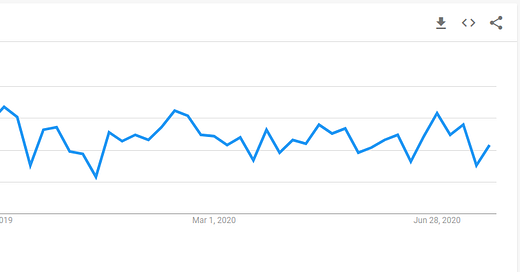



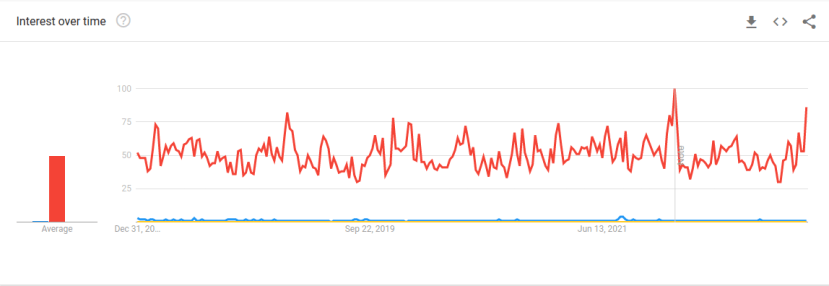
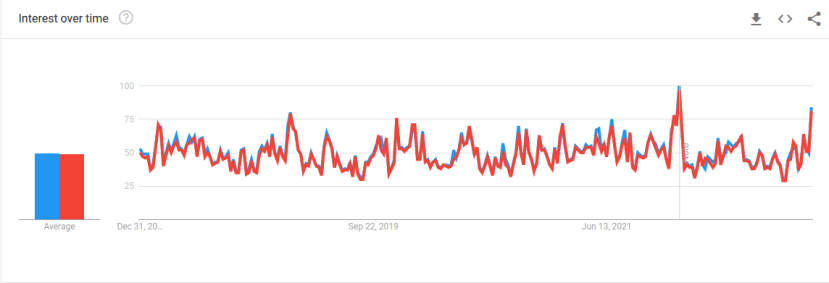
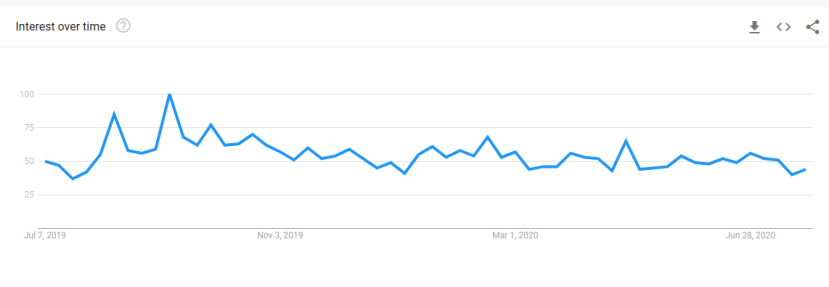
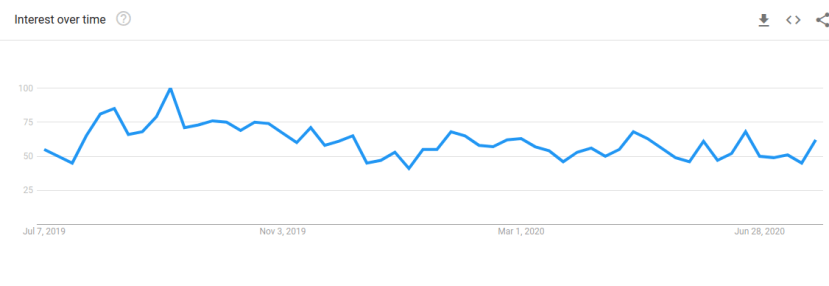

I think people shower too much...
I discovered, years ago, that one only needs to shower the 1st and the 15th day of odd months. One can skip the rule when the Earth eclipses the Moon, or when there is an election, or during hurricane season.
After hearing about my thrifty beauty routines involving the shower, people often inform me they are contemplating suicide, to which I respond that I don't care much because that is their problem.
Seriously, how did humanity survive so long without showers, indoor plumbing and water heaters?
Showering is pure superstition and germanophobia. Just because the krauts invented the police state doesn't mean we normal humans have to be as obsessed with hygiene as they are. Just pay the fine and be free!
(Notes: the above is mostly comedy; The deliberate conflation of "germanophobia" with "germaphobia" is deliberate; I remember a scene in a boring sci-fi movie called "Starship Troopers" about this mixed showers, where female troopers where commenting they joined the military only to gain permission from the Earth Government to become mothers: we live in a world that is best described as sci-fi cheesy script)